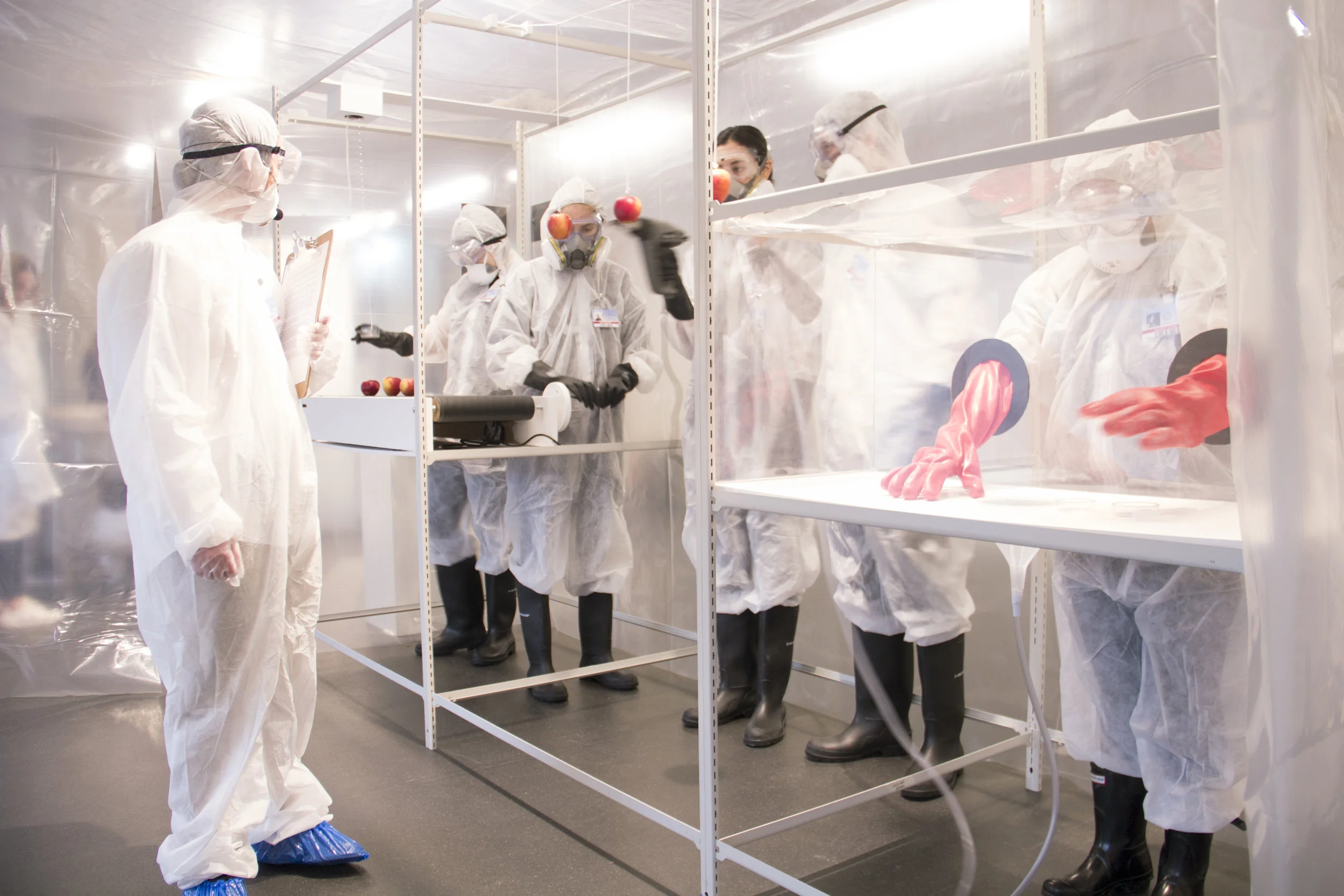Future fibres: pineapple, wheat and nano-technology
‘Nano Lamination Factory’,, for the London Design Museum’s Future Factory Symposium, 2018. Photography by Marta Giralt Dunjó and Carolina Perez Leon.
Natural, sustainable, breathable, wool is often touted as a sustainable alternative to carbon intensive synthetics. But no animal agriculture is without impact. Intensive farming methods lead to soil erosion and water pollution. The sheep themselves fuel global warming through methane emissions. All this - and that’s before we start accounting for the use, exploitation and slaughter of sentient creatures.
Material Researcher and Designer Nathalie Spencer looks to remedy some of the textile industry’s key ecological ills, exploring the Anthropocene and the symbiotic relationship between humankind and nature through her work. The results are extraordinary textile innovations and circular systems that could provide the models for a truly regenerative future fashion practice. Spencer graduated from Central Saint Martins with a Distinction in MA Material Futures, after achieving a First Class Honours in BA Art and Design from the University of Leeds. A selection of her unique creations have already been showcased within international museums including the Tate Modern and British Design Museum, as well as material libraries across Europe where they continue to provoke important conversations regarding the textile industry’s role in contributing to climate disaster.
Animal welfare and waste mitigation, as well as ambitions to protect wildlife from the impacts of consumerism, provide baseline criteria for projects which challenge industry norms in the hope of a sacrifice-free future. Developed in response to a brief set by ethical designer Stella McCartney, asking for an artefact that communicated her brand’s ethos and which prioritised an alternative means of fabrication or engineering, Spencer’s Master’s project ‘Wool: Re Crafted’ proposed a vegan alternative to wool using waste pineapple fibres.
Waste pineapple leaf fibres are turned into vegan wool.
Waste pineapple leaves, captured from local markets and juice bars, were meticulously deconstructed to create thin threads, which were then spun into spools and hanks of sturdy yarns. Working with the Rare Threads textile studio, Spencer employed traditional craft techniques to create unique, hand-woven fabrics. Today, Spencer works in collaboration with Dr Carmen Hijosa whose company Ananas Anam produces Pinatex pineapple leather.
Sustainable production and zero waste
In 2018, keen to explore emerging nano-technologies, Spencer developed the ‘Nano Lamination Factory’, for the London Design Museum’s Future Factory Symposium, where visitors were invited to explore future technologies and think about how these might effect future manufacturing. Currently, much fruit and vegetables are coated in an artificial wax layer before being placed within plastic packaging as a means of protection and preservation; Spencer’s Factory imagined a future in which these methods of coating are replaced with edible nano cellulose. Members of the public were greeted by individuals in full PPE and became part of an educational performance of each future scenario, in one instance, being encouraged to spray red apples hanging from the ceiling with airborne nano cellulose.
Alternatives to synthetic packaging continue to inspire Nathalie. Working with Elissa Brunato and the E5 Bakehouse Bakery, via a project titled E5 Ground, Nathalie is currently exploring the properties of wheat bran. Here, the team convert grain husks, separated from flour during miling, into unique textiles. In studying artisanal baking, experimental recipes have unearthed the hidden potential of waste materials to revolutionise product packaging.
‘Waste not, want not’ was once the mindset shared by thrify grandparents; now, just over a generation later, it is fast becoming the modus operandi of ecologically aware, next generation inventors. Working with ideas of finite resources, Spencer pioneers solutions for the textile industry’s ecological ills, providing real food for thought for a better future.
Words by Isabelle Clare
© Photograph by Tom Mannion


